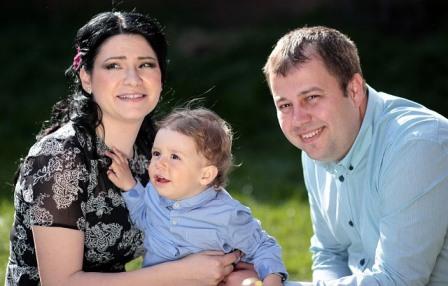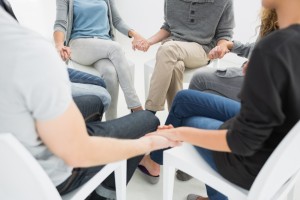- Calls to this hotline are currently being directed to Within Health, Fay or Eating Disorder Solutions
- Representatives are standing by 24/7 to help answer your questions
- All calls are confidential and HIPAA compliant
- There is no obligation or cost to call
- Eating Disorder Hope does not receive any commissions or fees dependent upon which provider you select
- Additional treatment providers are located on our directory or samhsa.gov
Integrating Healthy Coping Mechanisms Within the Family

Contributor: Crystal Karges, MS, RDN, IBCLC, Special Projects Coordinator at Eating Disorder Hope/Addiction Hope
Supporting a family member that has an eating disorder often means learning how to collectively work as a unit towards a common cause. As a loved goes through treatment, family members may learn new aspects about themselves and their family as a whole, and often make positive changes to support the eating disorder recovery process.
Developing Healthier Coping Mechanisms
Throughout eating disorder recovery, an individual often learns how to develop healthier coping skills rather than lean on the crutch of an eating disorder. Because emotions are often experienced and/or avoided through maladaptive behaviors, learning healthier coping skills becomes an essential part of recovering from an eating disorder.
For example, a person who may frequently engage in binging and purging behaviors when experiencing stress or anxiety may begin to develop other strategies for better handling these emotions, rather than turning to food. The process of learning healthier coping mechanisms is typically guided under the support of an eating disorder professional in treatment, such as a counselor or therapist.
During the process of recovery, families and loved ones are encouraged to participate in treatment to offer needed support and to become involved in the journey. Families may learn many things about themselves, either through family therapy or even being involved with support groups or personal therapy with their loved one.
This is a wonderful opportunity to take principles and therapeutic that may be learned and apply them within a family setting at home. This may be especially helpful for an individual who is returning home to their family after treatment or who needs additional support to continue applying therapeutic coping skills following discharge from treatment.
Many Treatment Options
 Many different therapies may be applied and integrated during the course of a person’s treatment for an eating disorder, including but not limited to dialectical behavioral therapy, interpersonal therapy, cognitive behavioral therapy, and more. Therapy sessions are often structured based on an individual’s needs, though the lessons and skills that are learned and developed can be applied for a lifetime.
Many different therapies may be applied and integrated during the course of a person’s treatment for an eating disorder, including but not limited to dialectical behavioral therapy, interpersonal therapy, cognitive behavioral therapy, and more. Therapy sessions are often structured based on an individual’s needs, though the lessons and skills that are learned and developed can be applied for a lifetime.
If you are unsure how to help support your loved one during their recovery or support the progress they have made during treatment, ask to be involved in the course of their therapy sessions when appropriate. You may find that your times spent in these sessions are also beneficial for yourself and your entire family.
Community Discussion – Share your thoughts here!
What types of healthy coping mechanisms have you learned to utilize in your life?
 About the Author: Crystal is a Masters-level Registered Dietitian Nutritionist (RDN) with a specialty focus in eating disorders, maternal/child health and wellness, and intuitive eating. Combining clinical experience with a love of social media and writing, Crystal serves as the Special Projects Coordinator for Eating Disorder Hope/Addiction Hope, where her passion to help others find recovery and healing is integrated into each part of her work.
About the Author: Crystal is a Masters-level Registered Dietitian Nutritionist (RDN) with a specialty focus in eating disorders, maternal/child health and wellness, and intuitive eating. Combining clinical experience with a love of social media and writing, Crystal serves as the Special Projects Coordinator for Eating Disorder Hope/Addiction Hope, where her passion to help others find recovery and healing is integrated into each part of her work.
As a Certified Intuitive Eating Counselor, Crystal has dedicated her career to helping others establish a healthy relationship with food and body through her work with EDH/AH and nutrition private practice.
The opinions and views of our guest contributors are shared to provide a broad perspective of eating disorders. These are not necessarily the views of Eating Disorder Hope, but an effort to offer discussion of various issues by different concerned individuals.
We at Eating Disorder Hope understand that eating disorders result from a combination of environmental and genetic factors. If you or a loved one are suffering from an eating disorder, please know that there is hope for you, and seek immediate professional help.
Last Updated & Reviewed By: Jacquelyn Ekern, MS, LPC on June 27, 2016
Published on EatingDisorderHope.com

The EatingDisorderHope.com editorial team comprises experienced writers, editors, and medical reviewers specializing in eating disorders, treatment, and mental and behavioral health.

